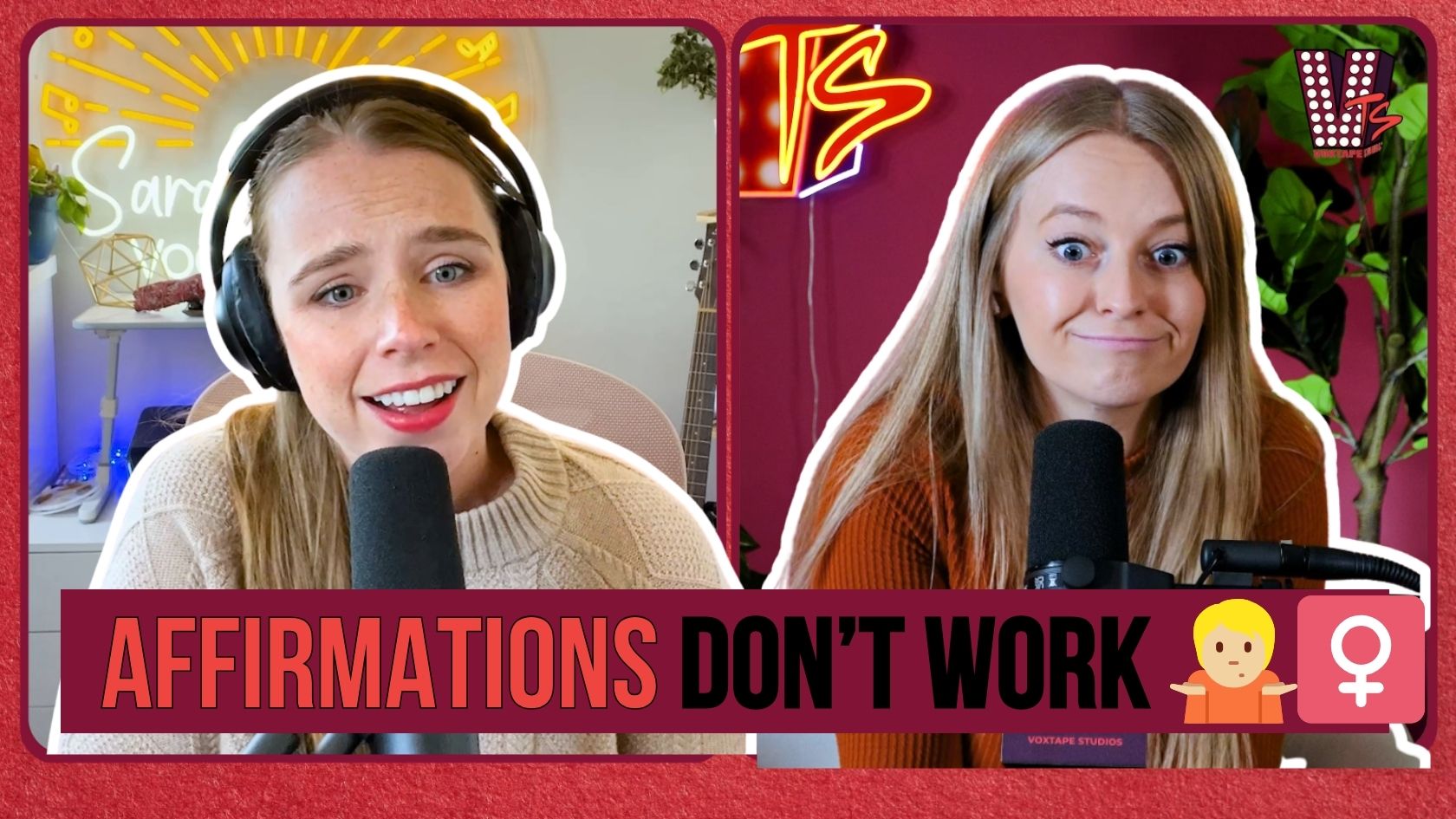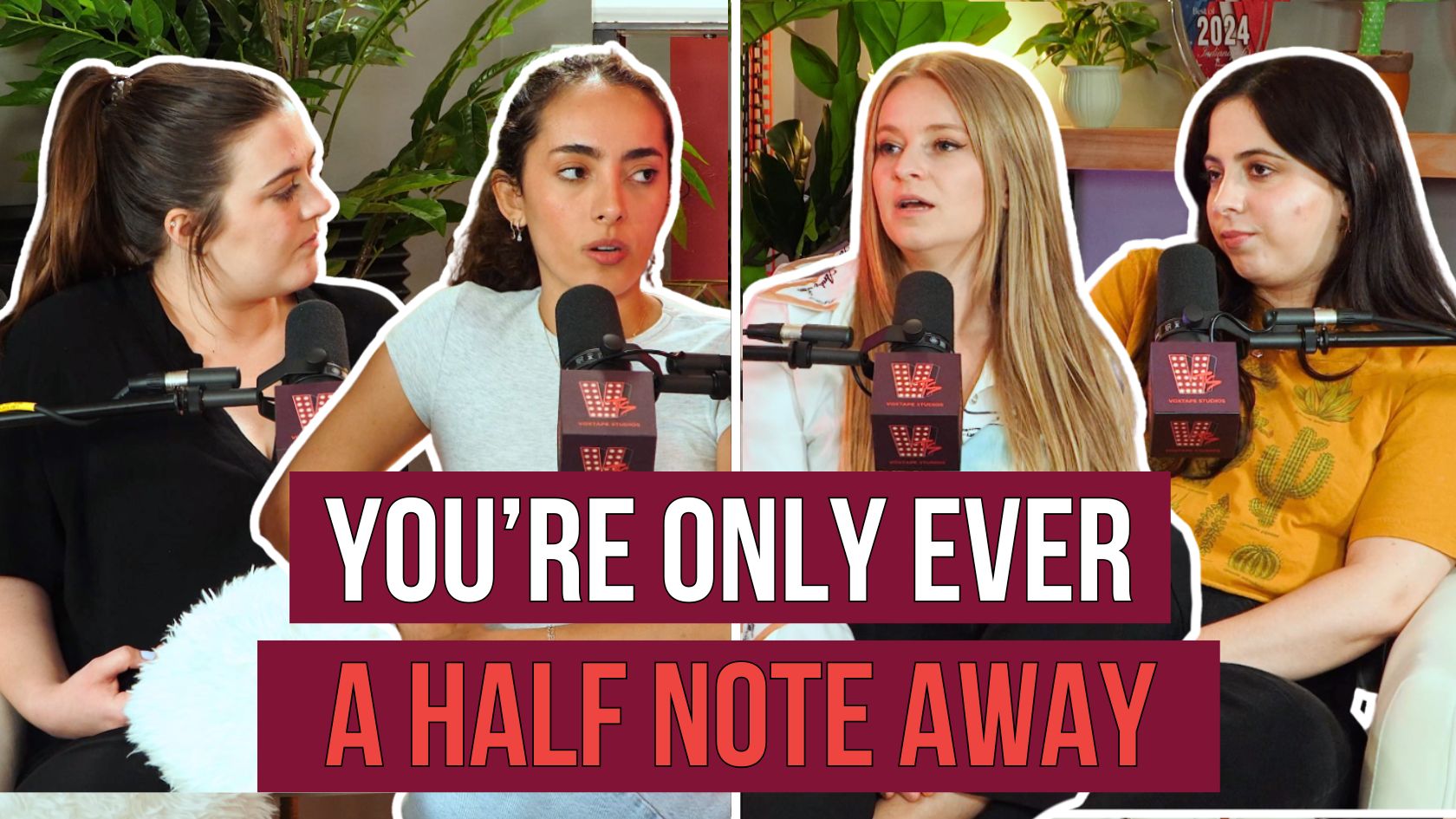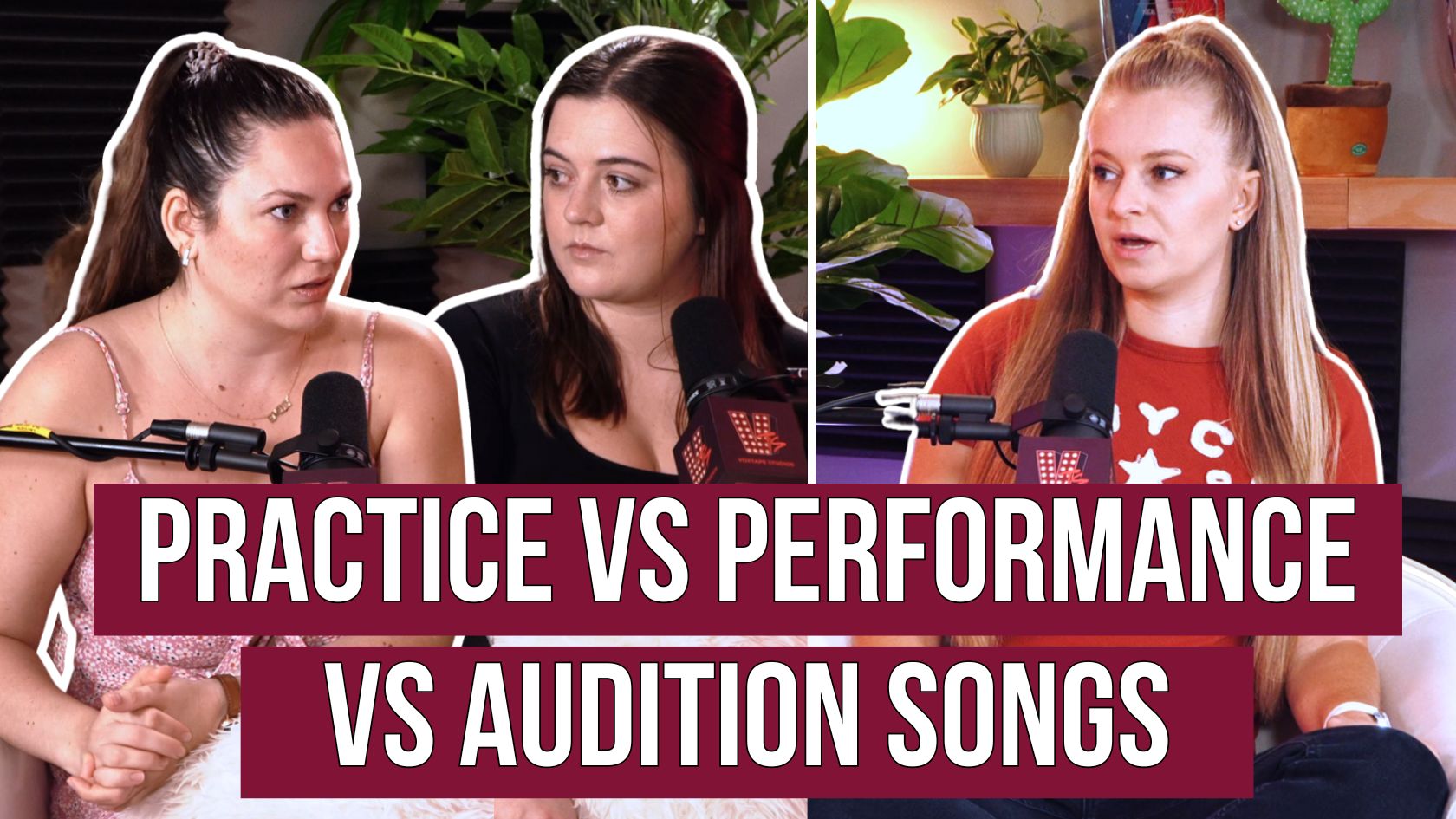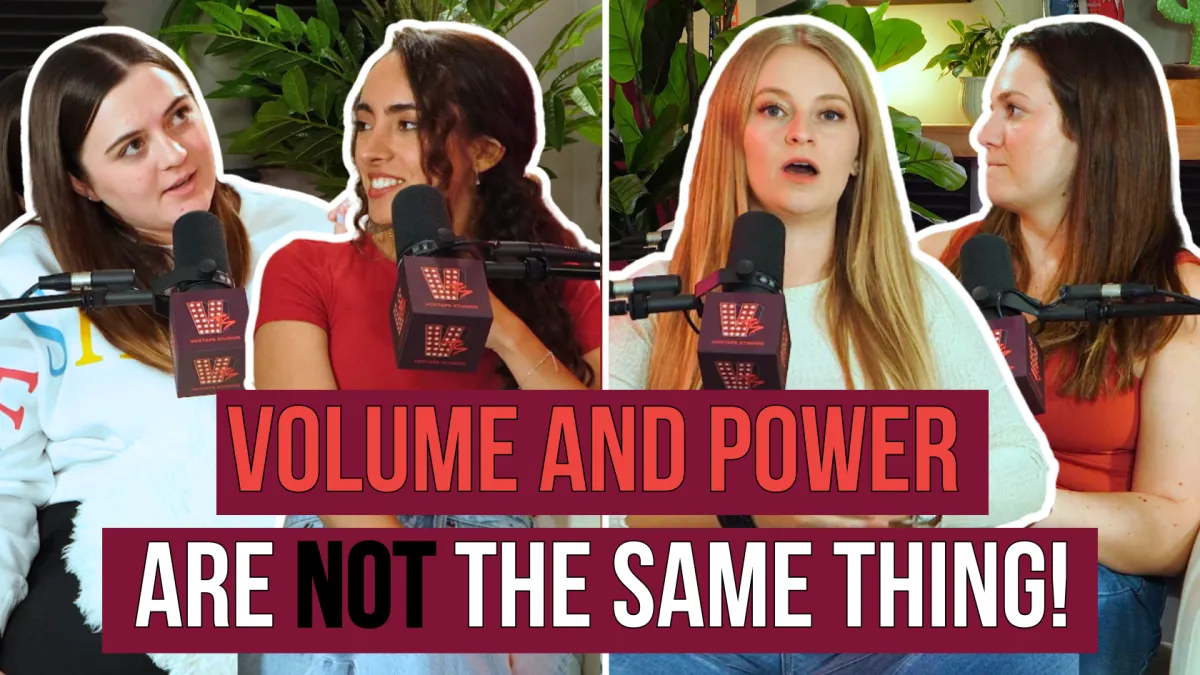From Starving To Thriving: The Mindset That Leads To Success
In this heart-to-heart with fellow voice teacher and creative coach **Sarah Bishop**, we dove into the mental side of singing - the difference between chasing success from desperation and creating from alignment. Together we unpack how singers can shift from “starving artist” energy into *thriving creative flow*, reclaim their power, and build careers (and voices) rooted in joy, trust, and integrity.
Want To Learn How To Harmonize? Start Here
Learning how to harmonize can be such a daunting task - especially if you’ve never really done it before. The good news is that it doesn’t have to be super hard to learn! To talk about how to learn harmonizing I had the whole VTS team join me for this episode.
How To Pick The Right Songs For Your Voice
I always say that song choice has the potential to make or break you, so it’s super important that you learn to pick the right songs for your voice. Coach Emily, Coach Bri and I talked about the different occasions of singing (practice vs performance vs audition) and how to choose which songs to sing for each, so that you can make more progress in your singing practice AND wow your audience at any performance or audition.
How To Control Your Volume In Singing
You don’t need to push harder to get more volume. In fact, the more you try to muscle your way through, the more tension shows up - and that’s what blocks your power. Coach Bri, Coach Emily, Coach Juliana and I explored what volume actually is, why it’s not the same as power, and how to get loud or soft without sacrificing tone. You’ll learn why singers often yell when trying to be heard, how to scale your dynamics safely, and how to develop intensity *without* overworking your voice. If you want to get louder *without* losing control - or sing softly *without* sounding weak - this is for you.



